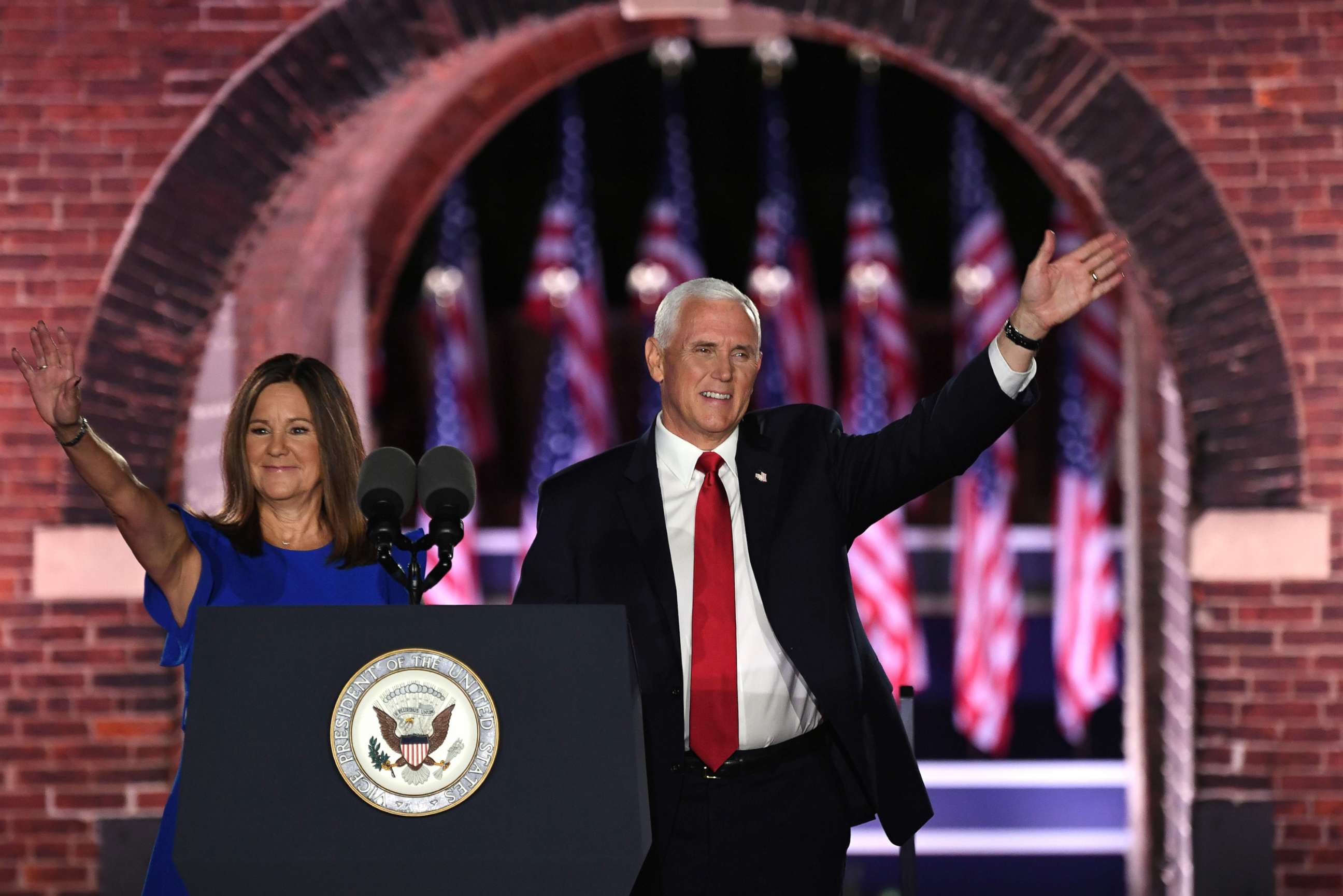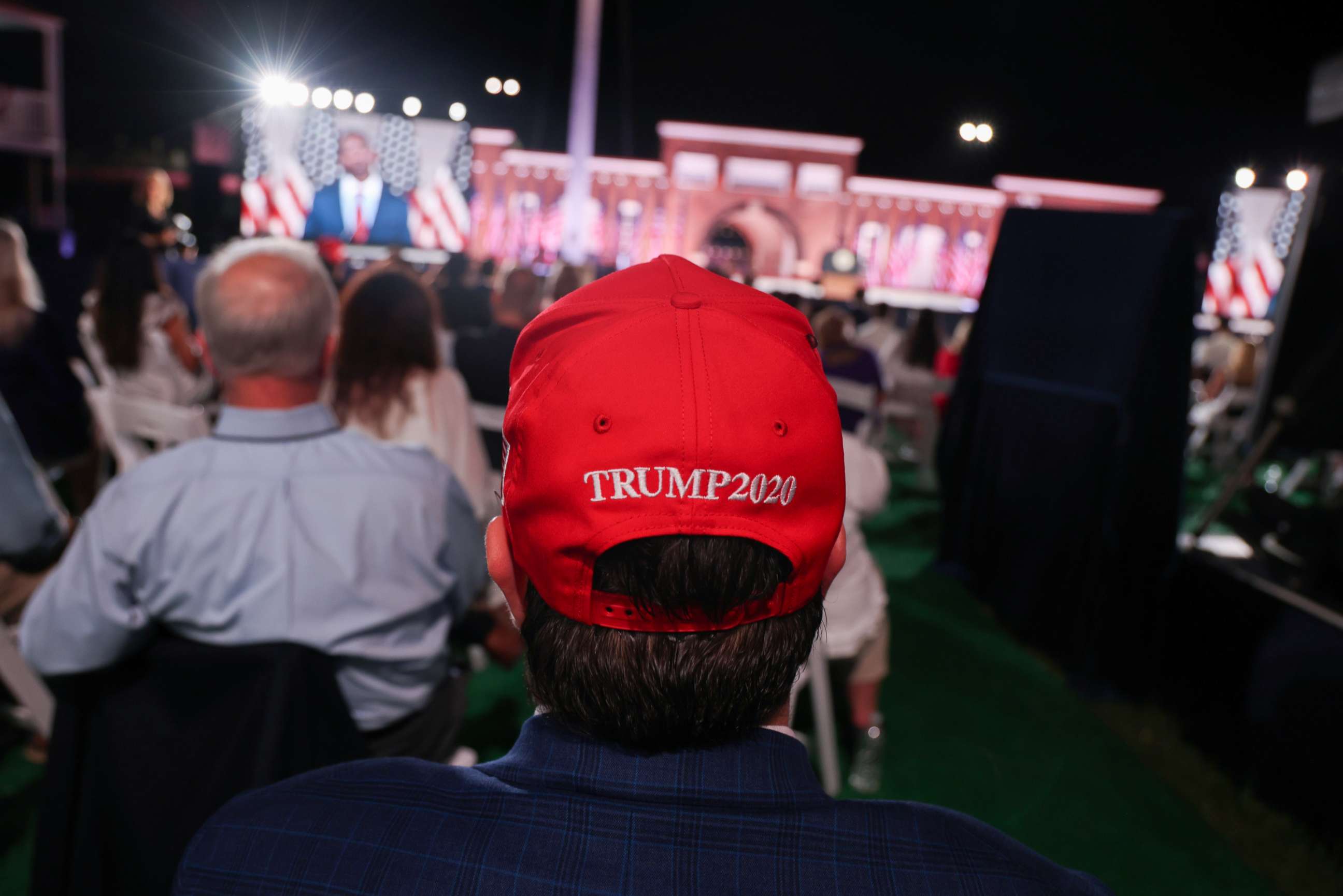GOP convention ignores inconvenient realities amid unrest and unease: ANALYSIS
It was a night where the GOP defined itself the way it wants to be viewed
For a divided nation tuning in to the Republican National Convention on Wednesday, the contrasts with events outside the broadcast could hardly have been more striking.
That, to President Donald Trump and his campaign, has always been part of the point.
Despite COVID-19 warnings and regulations, speakers and spectators did not wear masks, and most barely mentioned the toll of the pandemic at all. With Hurricane Laura just hours from landfall off the Gulf Coast, most of the speeches came from an empty and ornate room in downtown Washington and were taped in advance -- calm, perhaps, amid a storm.
On a night that pro sports stood still, with Black athletes speaking up by sitting out, the reasons for their protest went unmentioned.
The convention culminated in a choreographed performance of "The Star-Spangled Banner" by country music artist Trace Adkins. Everyone at Fort McHenry in Baltimore stood -- including a group of disabled veterans who used special equipment to do so.

"That Star-Spangled Banner still waves," Vice President Mike Pence said toward the end of his speech. "Let's fix our eyes on Old Glory and all she represents."
"You can kneel before God, but stand for our flag," Madison Cawthorn, a 24-year-old House candidate from North Carolina who is paralyzed from the waist down, said earlier in the evening.
The speeches and the setting offered scenes from a different America than the one most people have been living in, throughout a summer of racial tensions, economic uncertainty and a continuing pandemic.
As for this particularly tumultuous week, Jacob Blake, the Black man whose shooting in Kenosha, Wisconsin, sparked a week of protests and tension, was not mentioned by any speaker by name on Wednesday.
The closest any speaker came was when Pence referenced violence on the streets there, without mentioning why the protests are occurring. He used it as part of an attack on former Vice President Joe Biden.
"Last week, Joe Biden didn't say one word about the violence and chaos engulfing cities across this country," Pence said. "Let me be clear: The violence must stop -- whether in Minneapolis, Portland, or Kenosha."
Throughout the night, video presentations and speeches evoked images of toppled statues, smashed windows and burning flags. Pence previewed the multi-pronged attacks the campaign is planning against Biden, including an attack on Biden's suggestion that there is "systemic racism" in the United States.

"You won't be safe in Joe Biden's America," Pence said, asserting that "law and order are on the ballot."
Speakers kept up a theme of attacking not just Democrats but also, in many cases, the places they lead.
"Democrat-run cities across this country are being overrun by violent mobs," said South Dakota Gov. Kristi Noem.
"They close our churches, but keep the liquor stores and abortion clinics open," said Sen. Marsha Blackburn, R-Tenn.
"We have seen weak, spineless politicians cede control of our great American cities to violent mobs," said Lara Trump, the president's daughter-in-law. "Defund the police is the rallying cry for the new, radical Democrat Party."
Pence and the other featured speakers depicted Trump as they know him and as pro-Trump conservatives prefer to view him -- a rule-busting outsider who strives for results.
It was a night where the party defined itself the way it wants to be viewed, inside a convention designed to convey such messages. But reality shows don't necessarily match up to realities.




